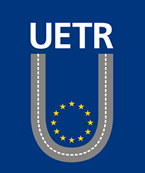
Vision
More specifically, we are committed:
To achieve this goal, we are dedicated to:
Eliminating excessive regulation and administrative burdens
Strengthening the capacity of professional associations to provide SME support and information dissemination
Supporting new technologies ensuring sustainability and competitiveness
Increasing road capacity
Improving harmonisation of legislation at national and EU level
Monitoring adverse developments in the sector
Developing response strategies
Mobilising all necessary financial resources










